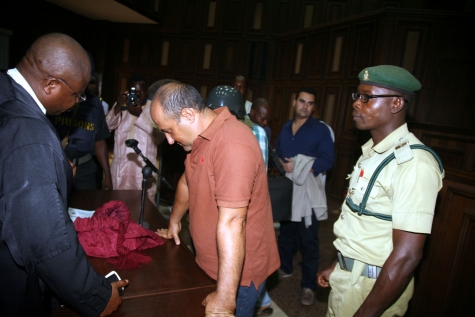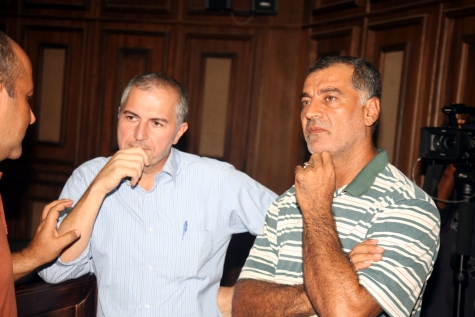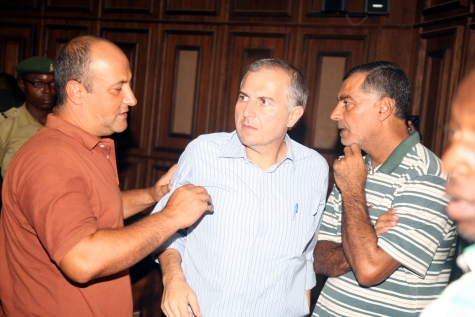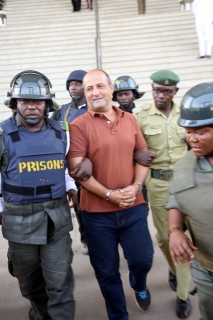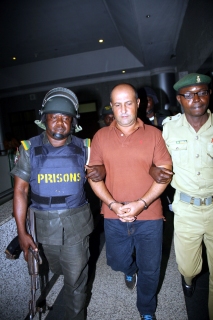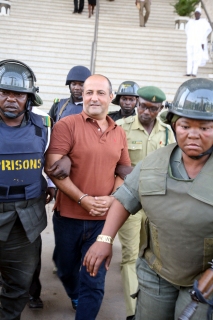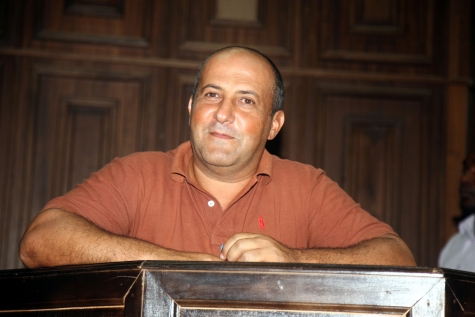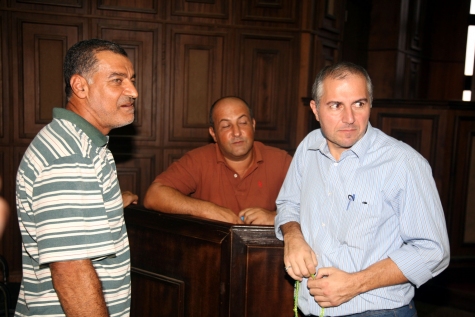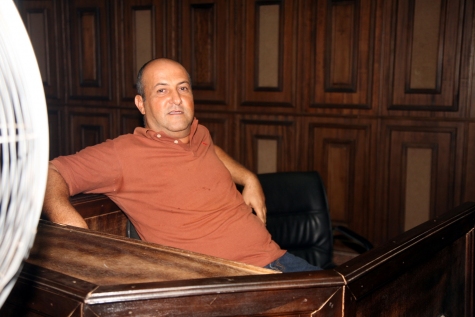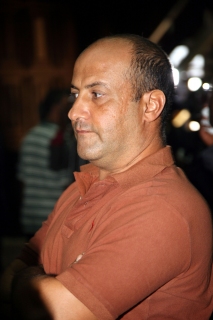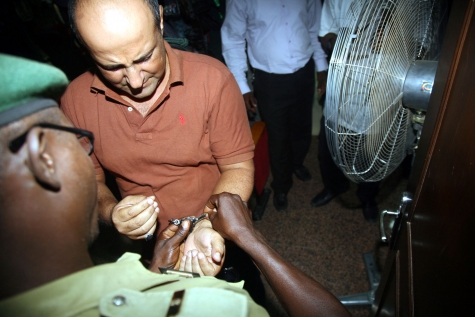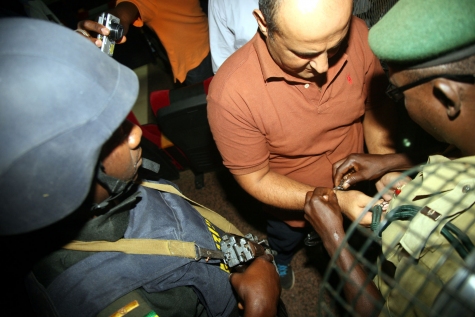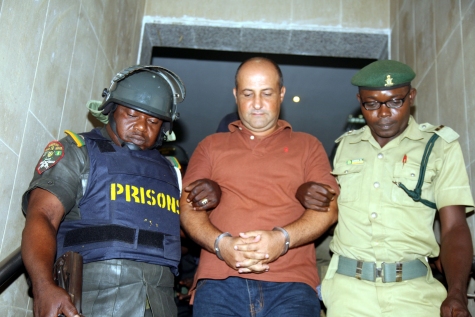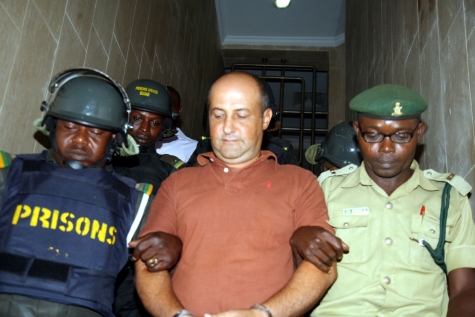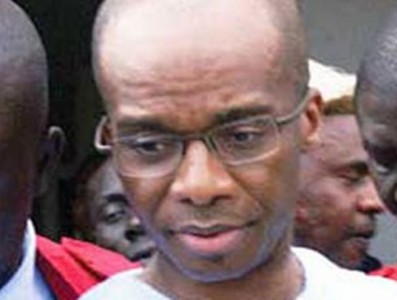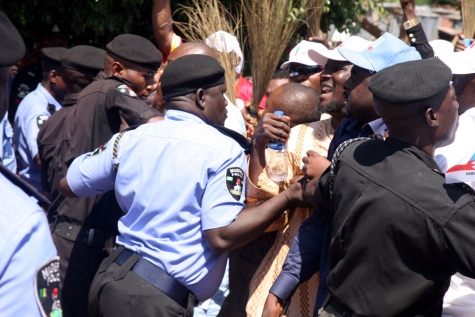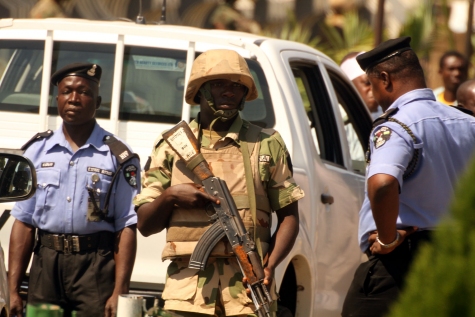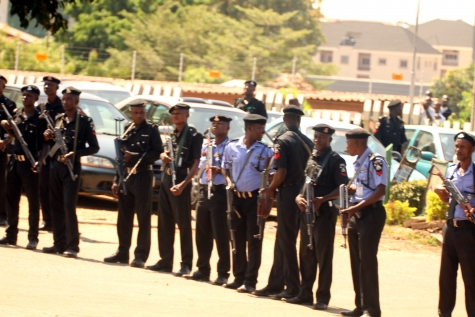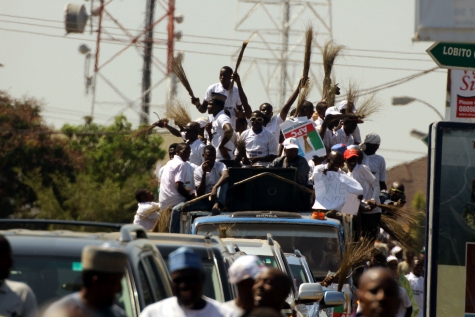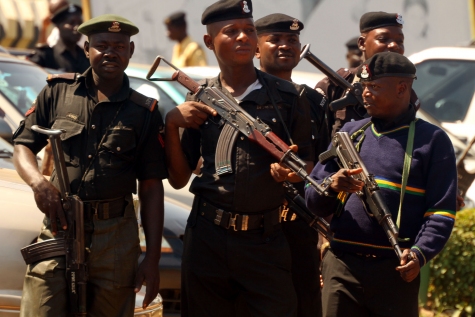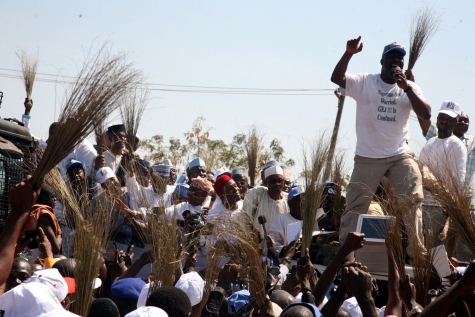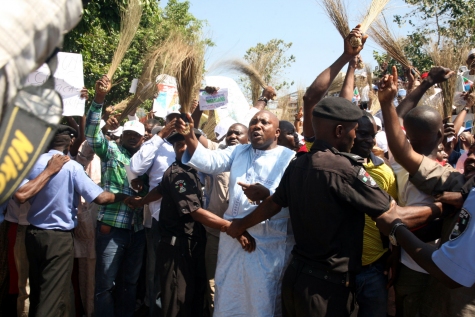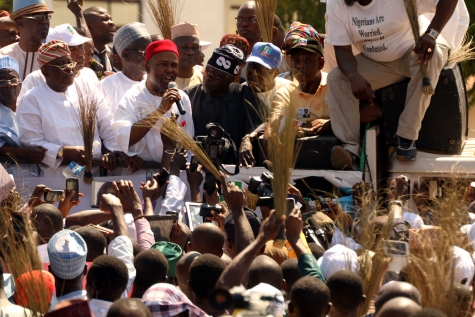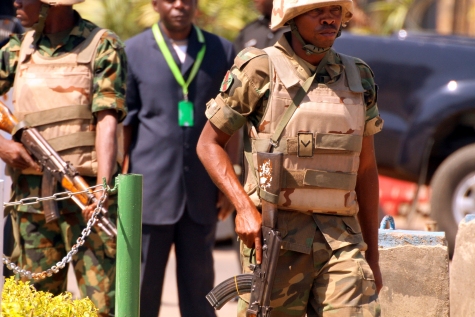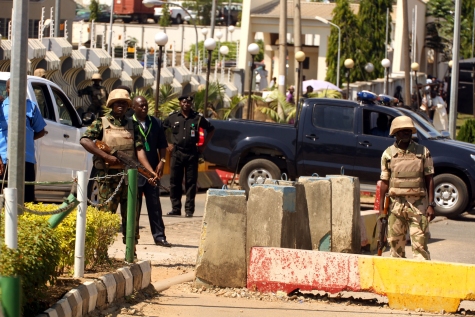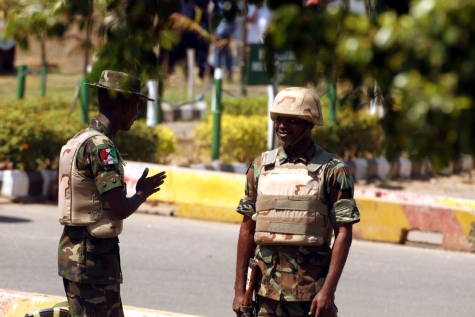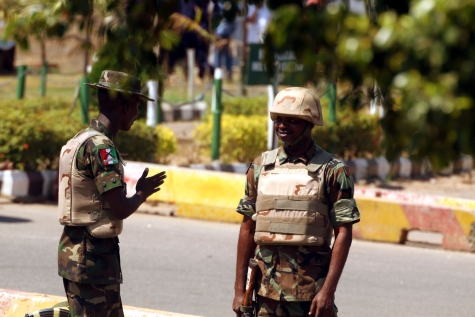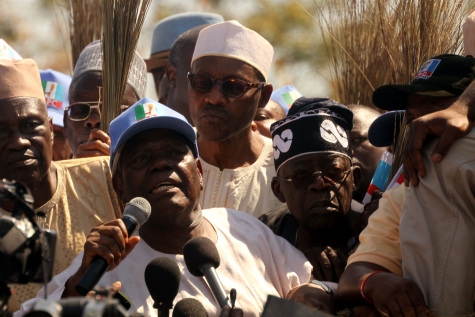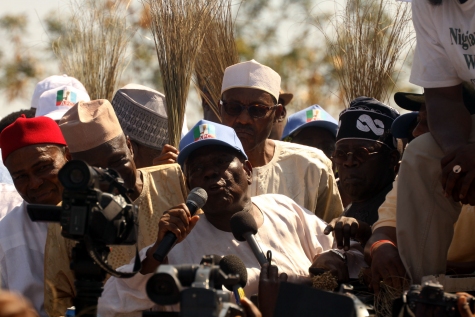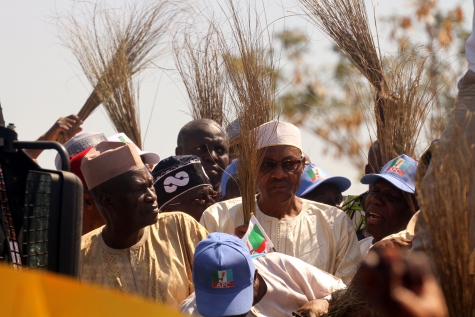Boko Haram has abducted scores of women and
girls, used children as young as 12 in hostilities, and killed hundreds
of people in recent attacks, Human Rights Watch said today. The Nigerian
government, meanwhile, has failed to account for hundreds of men and
boys whom security forces have rounded up and forcibly disappeared
during Boko Haram’s four-year insurgency.
The rise of an anti-Boko Haram group allied with Nigerian security
forces, the so-called Civilian Joint Task Force, has added a worrisome
new dimension to the violence. Civilian Joint Task Force members inform
security forces about presumed local Boko Haram activity; the Islamist
group then retaliates against both the neighborhood vigilante group and
the broader community.
“For a group that claims to be religious, Boko Haram’s tactics are
the most profane acts we can imagine,” said Daniel Bekele, Africa
director at Human Rights Watch. “The killing and mutilation of ordinary
Nigerians, the abduction and rape of women and girls, and the use of
children for fighting are horrifying human rights violations.”
In a nine-day November 2013 visit to Kano and Maiduguri, Human Rights
Watch interviewed more than 60 victims and witnesses, as well as
medical personnel, members of local rights groups, Civilian Joint Task
Force commanders, and government officials.
Commanders of the Civilian Joint Task Force, working with security
forces, said that they had rescued 26 abducted women and girls from a
Boko Haram stronghold in Maiduguri and later in Sambisa Forest. Some of
the women and girls were pregnant; others had babies. The commanders
told Human Rights Watch that a number of the girls had been abducted
while hawking wares on the street or working on farms in remote
villages. Many girls who were rescued or had escaped were sent off by
their families to distant cities like Abuja and Lagos to avoid the
stigma of rape or pregnancy outside of marriage, activists said.
Several witnesses said they saw children in the ranks of Boko Haram
during attacks. In Maiduguri, Human Rights Watch researchers saw a video
recording of the interrogation by security forces of a 14-year-old boy,
who described the role he played in Boko Haram operations. Commanders
of the Civilian Joint Task Force said they had freed numerous children
during a 2013 attack on a Boko Haram base in Sambisa Forest.
Human Rights Watch also observed children who appeared to be aged 15 -
17 manning checkpoints for the Civilian Joint Task Force in Maiduguri;
other witnesses described seeing children manning checkpoints elsewhere
in Borno and Yobe states.
Witnesses told Human Rights Watch that Boko Haram intensified its
attacks on civilians following the state of emergency imposed by the
federal government in May in Borno, Yobe, and Adamawa states. President
Goodluck Jonathan in November renewed the state of emergency in these
states for another six months.
Witnesses described Boko Haram laying siege to towns, villages, and
highways; looting and burning houses, shops, and vehicles; and executing
and decapitating people, some of whom they accused of aiding the
Civilian Joint Task Force. In July, the combined efforts of the security
forces and Civilian Joint Task Force appear to have pushed Boko Haram
out of Maiduguri. Since then, the group has carried out numerous attacks
in the nearby towns of Damaturu, Benisheikh, and Gamboru.
Boko Haram’s September 17 attack on Benisheikh, 74 kilometers west of
Maiduguri, killed at least 142 people and was the most lethal incident
in Borno State since 2010. A man who went to Benisheikh to look for a
colleague on the morning after the attack described what he saw at a
checkpoint that had been set up by Boko Haram and that was crowded with
burned vehicles:
“There were bodies all over… three here, two there, four near the
next – all lying face down, dead next to their vehicle. Then I saw a
long line of bodies… about 30 of them. But weirdly, one of the trucks
was carrying cows, which were still alive. Who are these people who kill
the human beings, yet leave the cows standing?” he said.
Another witness described seeing about 20 women abducted during the
September 17 Benisheikh attack. A health worker in Maiduguri told Human
Rights Watch that he attended to a 15-year-old girl who had recently
returned home pregnant several months after Boko Haram abducted her.
Security forces acting with enhanced powers, particularly during the
state of emergency, established frequent screening routines for male
youths in Maiduguri, detaining several hundred young men, according to
residents. Witnesses described how soldiers pounded on doors in
neighborhoods perceived as Boko Haram strongholds beginning at 5 a.m.,
ordered the young men out, demanded that they stand before a car with
its headlights on, and then declared the men either free or under
arrest. Scores of those arrested have disappeared, and their family
members, despite great efforts, have been unable to locate them.
A woman in Gwange, a Maiduguri neighborhood, described how security
forces arrested her seven sons, between the ages of 12 and 30, who had
gathered in front of their home with 15 others for evening prayers in
May. Another woman told Human Rights Watch that eight soldiers ordered
her 10-year-old son to lie down, beat him with batons and tied him up,
piled him face down with 22 others in an open-back vehicle, and then
drove them away.
Two former detainees and three other witnesses provided detailed
statements about the horrific conditions in the security forces’
notorious Giwa military barracks in Maiduguri. They said that hundreds
of detainees died as a result of dehydration, illness, and beatings,
while many others were executed.
Boko Haram should halt all attacks and release immediately all
children and women in its custody, Human Rights Watch said. The Nigerian
government should thoroughly and impartially investigate the fate of
the disappeared, as well as credible allegations of arbitrary detention,
use of torture, and deaths in custody by security forces.
The Nigerian government has a responsibility under international
human rights law to take all reasonable steps to protect its residents
from violence, but should not use excessive force, mistreat and torture
detainees, or conduct arbitrary arrests in quelling the Boko Haram
threat.
The Nigerian authorities should prosecute, based on fair trial
standards, all those who committed crimes during the conflict, including
members of the government security forces and pro-government vigilante
groups. The Civilian Joint Task Force, Human Rights Watch said, should
end recruitment and use of children in counterinsurgency and
intelligence activities.
The federal attorney general’s office, drawing on information from
the military, police, and State Security Service, should compile,
maintain, and make available a list of detention facilities and
detainees. The authorities should give detainees access to lawyers and
family members. Detainees should either be publicly and promptly charged
with a recognized crime in a civilian court or released.
The government, in coordination with the National Human Rights
Commission, should establish a commission of inquiry on “disappearances”
in northeast Nigeria; train Civilian Joint Task Force members in human
rights norms and standards; and work with child protection agencies to
facilitate the rehabilitation of former child soldiers and the return to
their families. It should also help provide psychological and medical
services to girls and women who have been abducted and raped.
“Many Nigerian families have suffered, even lost loved ones, at the
hands of both Boko Haram and the security forces,” Bekele said. “Boko
Haram must desist from waging war on ordinary Nigerians, while the
government should take urgent steps to hold to account soldiers who have
tortured, disappeared, and killed, regardless of rank.”
Fighting Between Boko Haram and Nigerian Security Forces
Since fighting with security forces in the summer of July 2009,
Nigeria’s homegrown Islamist insurgent movement, Jama’atu Ahlis Sunna
Lidda’awati wal-Jihad, popularly known as Boko Haram, has carried out
frequent attacks on police, soldiers, politicians, and other symbols of
authority, as well as on civilian property such as schools. The group is
waging a war against the government to establish an Islamic legal code.
Human Rights Watch for several years has documented Boko Haram
attacks and abuses by government security forces against civilians and
suspected Boko Haram members. In a 2012 report, “Spiraling Violence”,
Human Rights Watch analyzed the pattern and scope of the violence that
has engulfed communities in northeast and central Nigeria.
In June 2013, young men in Maiduguri organized into a group known as
the Civilian Joint Task Force, or Yan Gora, to monitor and protect their
town and neighboring villages from violence. Members interviewed by
Human Rights Watch said the youth had grown tired of being targeted by
both Boko Haram and the security forces. The group maintains
checkpoints; searches pedestrians, vehicles, and residences; and
provides intelligence to the security services.
The Civilian Joint Task Force relies on members’ knowledge of the
community to identify Boko Haram members for the security forces. The
Borno State governor has recruited 1,800 youths, paying them the
equivalent of US$100 per month to work with the Civilian Joint Task
Force, who are trained by security forces. Recruitment and training of
Civilian Joint Task Force members is ongoing.
Boko Haram’s Execution and Decapitation of Civilians in Benisheikh
The September 17, 2013 attack on Benisheikh was Boko Haram’s most
deadly attack on civilians in Borno State since 2009. At least 150
members of Boko Haram took over and for several hours held a stretch of
the highway near the town, 75 kilometers west of Maiduguri, the Borno
State capital.
During the siege, they killed at least 142 people, according to
officials from the Borno State Environmental Protection Agency, which
cleared away and buried the bodies. The heavily travelled road connects
Maiduguri with Kano, the commercial hub to the west.
Human Rights Watch interviewed seven witnesses with knowledge of the
attack, including three detained by Boko Haram during the episode and
four others who went to the scene shortly after Boko Haram members fled.
The witnesses described how heavily armed men from Boko Haram set up
checkpoints that forced at least 30 vehicles to stop – private cars,
commercial taxis and minibuses, motorcycles, and trucks carrying goods
and livestock. The armed men ordered the passengers out of the vehicles
and demanded their cash, telephones, and identity cards. Boko Haram
separated the women and children from the men, who were ordered to lie
down on the road, then executed scores of the men and several boys.
During and after the attack, Boko Haram stole merchandise from the
vehicles as well as from stores inside Benisheikh.
Witnesses who arrived shortly after Boko Haram fled described seeing
several lines of bodies on the road, many with their feet and hands
bound. Others were in the grass not far from the road. Most had one or a
few bullets to the head and neck; others had deep machete wounds.
According to a morgue attendant who picked up the bodies, at least six
had been decapitated.
Witnesses said that based on comments from Boko Haram, many of the
victims were targeted merely on the basis of where they lived: those
from Maiduguri, Damaturu, and other towns in Borno and Yobe states were
singled out for execution because of their perceived support for the
Civilian Joint Task Force. Many of those from Kano and elsewhere were
spared. A driver from Kano said:
At the entrance to the town, I was stopped by a group of 35 men in
military uniform and turbans covering their faces. They were heavily
armed with AK[47]’s; many had machine guns. They looked in my car and
seeing I had mostly women, motioned for me to move on until I was
stopped by another big group of more than 100, at the truck stop [where
we usually pray and eat]. I was one of at least 30 vehicles. They
ordered us out, yelling at the men to lie down on the road, and for the
women to move to one side. They asked the men where we were from….
The driver never again saw his passengers, who were from Maiduguri:
While lying there, I saw them kill 10 men… they walked behind a small
house with them, then I heard them in Hausa saying, “Uh huh… you’ve
left us, you are Civilian JTF [Joint Task Force], you have chosen your
side,” meaning the government. Then a shot… and another and another.
Later, after BH [Boko Haram] fled, I saw the 10 bodies where they’d been
slaughtered.
Another driver identified the bodies of two of his friends – one in a
cluster with nine other bodies, another with four other dead. A third
driver, who also searched for his colleague, found his body, but “his
head was to one side… completely severed… I couldn’t sleep for days.”
A man who went to Benisheikh on the morning after the attack
described what he saw as he searched for the body of his colleague who
had failed to return home from Kano:
I saw four big trucks and about 15 cars or minibuses – most of them
burned, some still smoldering, and next to them were the bodies… three
here, two there, four near the next – all lying face down, dead next to
their vehicle. Then I saw a long line of bodies… about 30 of them. Each
had his legs and hands bound, and a cloth over their eyes… it was here I
found my friend. He, like the rest, had been killed with a bullet to
the back of the head.
Boko Haram Abduction and Rape of Women and Girls
A driver detained in September at a checkpoint manned by Boko Haram
near the town of Benisheikh told Human Rights Watch that he saw Islamist
group members force more than 20 women at gunpoint to get off public
transport vehicles and climb onto two other vehicles that sped away with
Boko Haram:
At their checkpoint they ordered us out, yelling at the men to lie
down on the road, and for the women to move to one side. I remained on
the ground for over 45 minutes… I saw them kill many men, but the women,
they took them away… I saw two of the vehicles they’d stopped drive up
close to us… one 16-seater, the other of about 10 seats. A few of the BH
[Boko Haram] went over to where the women were gathered, pointing at
which ones they wanted. They didn’t take those with children – mostly,
they took young women in their 20s… they picked the fine [pretty] ones.
They ordered them inside, at times pointing their guns, saying, “Go,
go.” A few other women were ordered to get into one of their Hiluxes
[vehicles]… The women were crying and saying, “Oh my God, oh my God,” as
they entered the cars. None of the men dared say a word… Then they
[Boko Haram] drove away with [the women]…
A woman who works with a local nongovernmental organization told
Human Rights Watch that she interviewed a young woman who was saved from
abduction during the Benisheikh attack after a former neighbor, now a
member of Boko Haram, recognized her. A bus owner said Boko Haram
released one of his captured passengers after seeing her walk with a
limp.
In Maiduguri, residents told Human Rights Watch that, on several
occasions, members of Boko Haram forcefully abducted several teenage
girls. One man who had documented several of these cases said, “After
storming into the homes and throwing sums of money at their parents,
with a declaration that it was the dowry for their teenage daughter,
they would take the girls away.” Some of the girls returned months
later, showing signs of pregnancy or babies born during their captivity.
One witness said his neighbor was shot dead for rejecting the “dowry”
thrown at her by insurgents, who took away the neighbor’s daughter.
A Civilian Joint Task Force commander who had participated in a raid that freed some abducted women and girls said:
When we made Maiduguri “too hot” for Boko Haram, they ran away
without their wives. Now they are picking up women anywhere and using
them to satisfy themselves. Some of the girls we found hiding when we
invaded Boko Haram camps around Sambisa [Forest] told us they were
dragged into vehicles when hawking on the street. When we return them
home, their families are too ashamed to keep them because nobody will
marry a girl who has been raped or has a child for these bad people.
Recruitment and Use of Children by Boko Haram and the Civilian Joint Task Force
Several witnesses described the presence of children, a few as young
as 12, in the ranks of Boko Haram. Witnesses to the Benisheikh attack
observed some children carrying AK47 rifles. Human Rights Watch viewed a
video of the interrogation by the military of an alleged child
combatant who described the duties children perform for Boko Haram:
intelligence gathering, tracking the movements of the security forces,
transporting guns, burning down schools and churches, and providing
information before attacks.
Other witnesses described seeing several children aged 15 - 17
manning checkpoints for the Civilian Joint Task Force, working with
security forces within several towns in Borno State. Civilian Joint Task
Force members admitted to having used numerous children in operations.
However, one leader noted recently that “the military had advised us not
to allow any children to enter into the Civilian JTF [Joint Task Force]
as part of our ongoing recruitment drive.”
Nigeria is party to the Optional Protocol to the Convention on the
Rights of the Child on the involvement of children in armed conflicts,
which bans the recruitment and use in hostilities of children under 18
by armed groups distinct from the armed forces of a country. Under
Nigeria’s 2003 Child Act, the government is required to ensure that no
child is directly involved in any military operations or hostilities.
Mass Arrests, Detention, and Disappearances by Security Forces in Maiduguri
Former detainees, family members of detainees, human rights
advocates, and militia leaders described the detention in Maiduguri of
hundreds of men in mass arrests by security forces; the numbers of
detentions were particularly high in May and June 2013.
Scores, perhaps hundreds, of these men and boys remain unaccounted
for. Witnesses and former detainees credibly assert that detainees died
in custody from the appalling detention conditions or were executed by
the security services within the 21 Armored Brigade, popularly known as
Giwa Barracks. Both the detentions and deaths in custody appear to have
slowed since July.
Human Rights Watch documented five major mass arrests, in markets,
mosques, and other locations where young men are known to congregate.
Witnesses said the security forces appeared to detain the men
arbitrarily.
Human Rights Watch spoke with 16 family members of men and boys
detained by the security services during sweeps of their neighborhoods
in Maiduguri, including Gwange, Gamboru ward, Terminus, and Baga fish
market. Many of the relatives saw the mass arrests. Family members and
witnesses described how, often after Boko Haram attacks, members of the
security forces indiscriminately rounded up and arrested boys and young
men in the vicinity who were presumed to be aligned with the group.
Several people in the vicinity of Baga fish market in Maiduguri
described how, in May 2013, security forces shot and killed 13 young men
and arrested more than 200 others during a major operation. One witness
said:
I was attending to customers at my stall on Democracy Day (May 29)
when at about 9 a.m. soldiers surrounded the market and locked the
gates… They ordered everyone to come out into an open space in the
market, then separated the young men from the old… The commander of the
soldiers… stood in front of the young men with someone whose head was
covered… He would count then point…
Whoever he pointed at would have their shirt immediately torn off by
other soldiers and the pieces used to tie their hands at their back.
Sometimes he would touch people on their chest and if their hearts were
pounding or they moved, their shirt would also be torn off and used to
tie them. Some people became nervous, afraid, and tried to move away
from the soldiers. They were instantly shot dead… Thirteen dead bodies
were taken away by the soldiers when they finished screening us at
around 9 p.m. at night…
They piled the young men whose hands they had tied on top of each
other in the trucks that brought fish to the market… More than 200
people were arrested from this market that day. We heard later that
those at the bottom of the piles were already dead when the trucks
arrived at JTF [Joint Task Force] Sector 1. Those that remained alive
were taken to Giwa Barracks later that night and we never saw them in
the market again.
A man who was detained at Giwa Barracks for six months with 16 other
men and boys from his neighborhood, ranging in age from 17 - 60, said he
was the only one from the group to survive. Hundreds of his cellmates
died at Giwa, the man said:
After reaching Giwa, many of us were chained to the columns – four of
us on each one – where I remained for 20 hours while they beat us; an
old man chained alongside me died right there, his head hanging limp. I
watched as six of my neighbors died while being beaten with sticks and
iron rods by soldiers the very first day we got to Giwa Barracks – two
of them were brothers. They fell down and never got up again.
Of those in my group, the other 10 died from starvation and illness
in the cell, where we were detained with over 1,000 other men… They died
one by one like so many others, of illness, of sickness like dysentery
or cholera, of hunger… sometimes up to 25 would be taken out of the cell
dead. In one day I saw others being dragged off for interrogation, but
they never returned.
On several occasions I heard the officers saying, “Just finish him,”
and then a shot would ring out. Once I saw the major take out a Beretta
[firearm] and shoot a detainee… only they will know what to say to Allah
on the Day of Judgment.
Several witnesses described an underground bunker where men thought
to be active members of Boko Haram were detained and where the
conditions were even worse. Two witnesses described seeing corpses on
several occasions brought up from the cellar and loaded onto an
ambulance.
The former detainees and witnesses described gross overcrowding, with
hundreds of men jammed into a cell: “We were packed so tightly; if you
dared stand up, there was no way you’d find the room to sit down again,”
one former detainee recalled. The detainees at times urinated,
defecated, and vomited on themselves. One detainee said he bathed only
twice in six months.
Witnesses attributed the majority of deaths in detention to
dehydration and illness, primarily dysentery. They said the pace of
deaths increased in the hot months and rainy season. One detainee
claimed to have seen up to 20 or 25 dead being taken out per day.An
18-year-old former detainee who was arrested in his home with a friend,
also 18 years old, said:
I was handcuffed to my friend for 10 months and had only one free
hand to quickly use the toilet and get our meal, which is served
directly unto our palms within the five minutes we were opened up in the
mornings and evenings [to use the bathroom and get meals]. My friend
became gravely ill and weak so our cuff was removed, but he received no
treatment or medication except painkillers once in a while. When we were
eventually released after two years through the intervention of a
benefactor, my friend could no longer hear, speak, or walk… He is still
gravely ill now.
A group of 70 women and children from the Terminus area of Maiduguri
in early November protested the detention without charge of their family
members at Giwa Barracks. One of the group’s leaders told Human Rights
Watch that the detainees, aged 15 - 30, had not been permitted to see
their family members, who had tried desperately to locate and visit
their detained loved ones.
Witnesses at a hospital in Maiduguri described seeing soldiers bring
corpses to the hospital on nearly a daily basis, both from Boko Haram
attacks and Giwa Barracks. The largest numbers were in May and June,
when the military ambulance would sometimes make up to seven trips from
Giwa Barracks to the morgue, witnesses said. The corpses that arrived at
the morgue were visibly emaciated; some with hands tied behind their
backs, or had scars around the wrists, suggesting they had been
handcuffed for extended periods of time. Some of the corpses had “necks
hanging at strange angles” or gunshot wounds that suggested the cause of
death, witnesses said.
Source: Human Rights Watch










